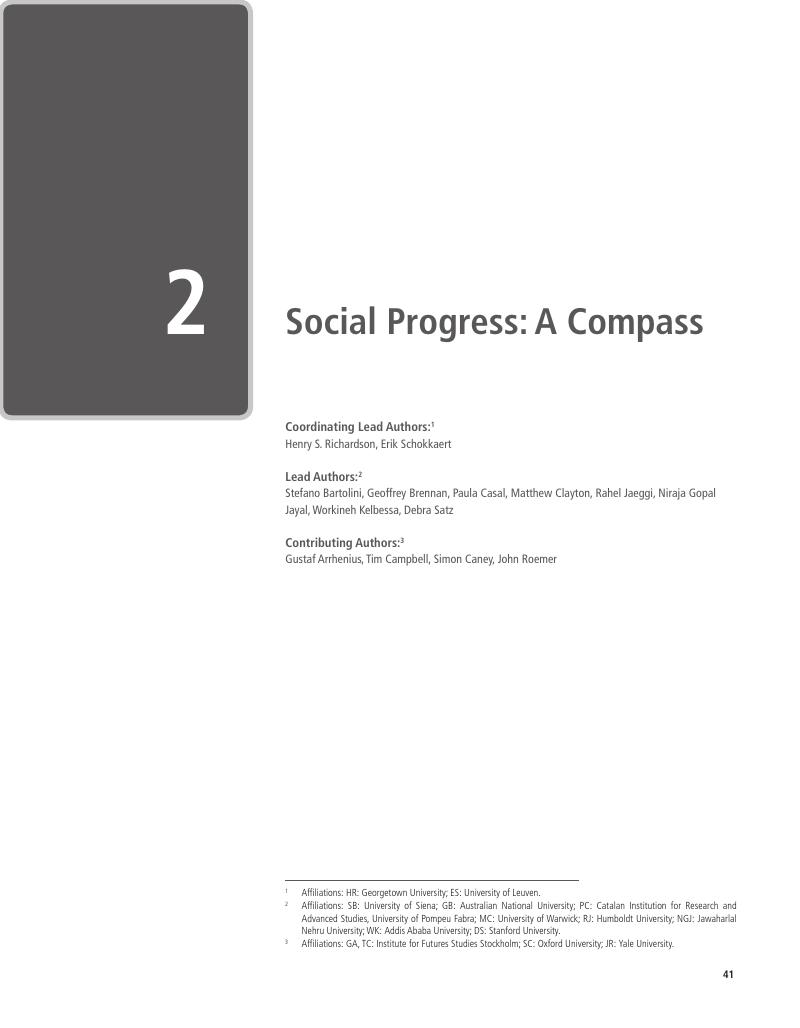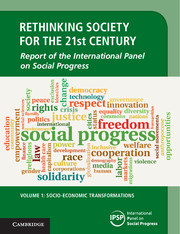2 - Social Progress: A Compass
from Introductory Chapters
Published online by Cambridge University Press: 05 July 2018
Summary

- Type
- Chapter
- Information
- Rethinking Society for the 21st CenturyReport of the International Panel on Social Progress, pp. 41 - 80Publisher: Cambridge University PressPrint publication year: 2018
References
- 2
- Cited by



